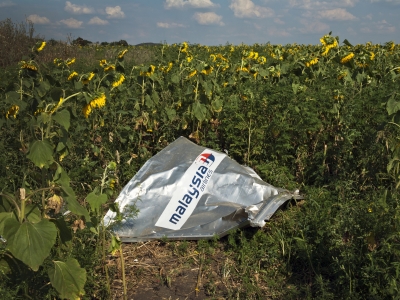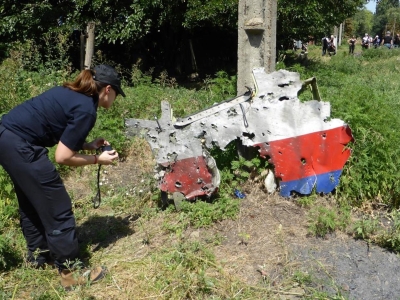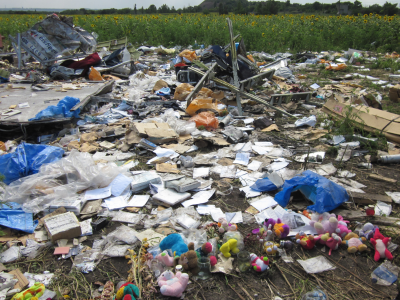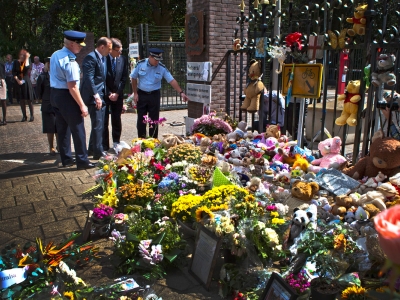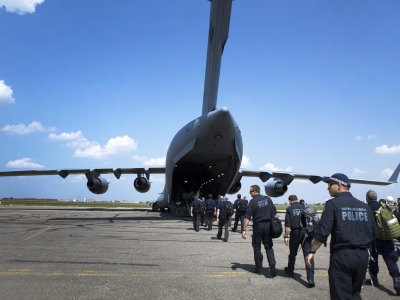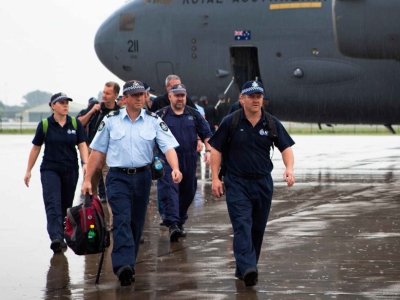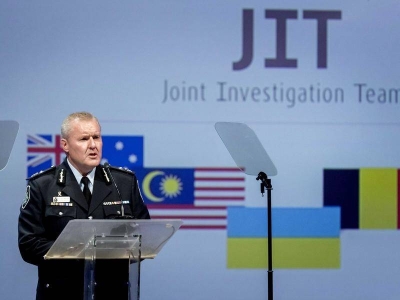Content warning: This webpage contains content that may be distressing for some readers. Reader discretion is advised.
17 July 2014. Schiphol Airport, Amsterdam. Malaysia Airlines Flight MH17, bound for Kuala Lumpur, takes off just after midday.
Approximately 3 hours later, in the skies above eastern Ukraine, the commercial passenger jet disintegrates. The shattered remnants plunge into a sea of sunflowers, sending plumes of thick smoke into the northern summer sky. On board were 298 people, including 38 passengers who called Australia home. None survived.
Recovering and identifying victim remains would quickly become an unprecedented operation for the Australian Federal Police (AFP), the Australian Government, and international counterparts. It would also become a complex mission to find the truth about what happened to MH17 and bring the perpetrators to justice.
Through the sharing of remarkable first-hand accounts, Search Among the Sunflowers takes you inside the AFP’s wide-reaching response to one of the world’s worst aviation tragedies.
This new 5-part podcast series highlights the AFP’s unwavering dedication in the pursuit of justice for victims of crime … and the families left behind. Search Among the Sunflowers: Looking for truth in the world’s biggest crime scene – a remarkable story of courage, determination and humanity.


